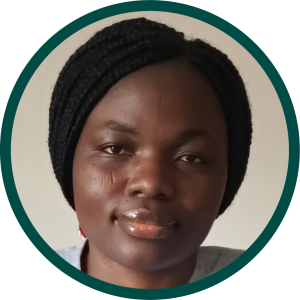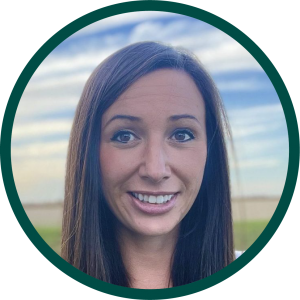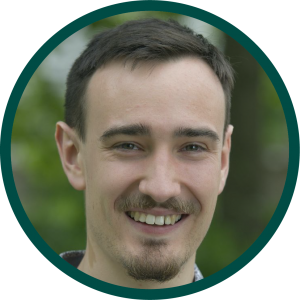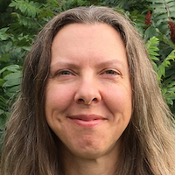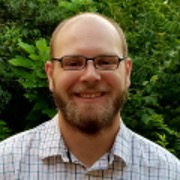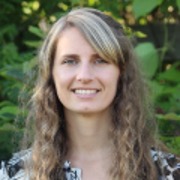FEBRUARY 15, 2022 – MORRISVILLE, NC – The Soil Health Institute (SHI), the non-profit charged with safeguarding and enhancing the vitality and productivity of soils, announced funding today from Wells Fargo to identify microbial indicators of optimal carbon cycling and storage in soil.
“Increases in carbon storage following adoption of regenerative soil health systems can take years to distinguish,” Dr. Elizabeth Rieke, Soil Microbiome Scientist for the Soil Health Institute said. “Our goal is to develop microbial indicators that allow stakeholders to observe how management decisions impact their potential to transform and build soil organic carbon stocks.”
The work will utilize metagenomic and carbon data collected as part of the North American Project to Evaluate Soil Health Measurements. “Most carbon inputs from crop residues and root exudates must be transformed by microbial community members prior to stabilizing in the soil profile,” explained Dr. Rieke. “However, currently adopted indicators of carbon cycling in soil rely on disturbed soil samples, whose measures are difficult to relate back to in-field dynamics. Development of DNA based indicators will provide an opportunity to directly describe a soil’s functional potential to cycle carbon.”
Establishing genomic indicators of carbon cycling is the first step in the Institute’s goal of creating a suite of DNA based soil health indicators capable of describing a multitude of different soil functions. “Most currently utilized soil health indicators only relate to a single function, which has led to the development of numerous indicators. We believe that several soil functions can be tracked through analysis of a single DNA extract. Our goal is to identify genes of interest through metagenomic sequencing and then optimize direct quantification of the genes using high throughput qPCR performed on DNA we extracted from soils with known management histories across North America.”
Providing farmers low cost, easily interoperable indicators aids in the Institute’s goal of establishing regional soil health and carbon targets. “To measure soil health at scale, we must consider indicator return on investment. Defining a core suite of genes related to different, currently unreported, soil functions is a cost-effective approach for measuring soil health at scale,” said Rieke.
“In addition to benefits related to improving crop yields and the nutritional quality of the food we grow, soil health is a critical factor in sequestering greenhouse gases like carbon dioxide from the atmosphere,” said Jennivine Kwan, Sustainability Strategist for Wells Fargo’s Institute of Sustainable Finance. “As one of the top lenders to the agriculture sector, we are proud to support the efforts of the Soil Health Institute to develop easy-to-use, easy-to-understand techniques for measuring soil health to benefit famers and their communities, increase carbon storage by the sector, and reduce its environmental impact.”
About the Soil Health Institute
The Soil Health Institute is a global 501(c)(3) non-profit with a mission to safeguard and enhance the vitality and productivity of soil through scientific research and advancement. We bring together leaders in soil health science and the industry to help farmers, ranchers, and landowners adopt soil health systems that build drought resilience, stabilize yield, and benefit their bottom line. The Institute’s team of scientists, holding doctorates in various soil science and related disciplines, has developed highly effective soil health targets and standardized measurements to quantify progress at achieving regenerative and sustainable agricultural systems, and leads the cutting-edge fields of carbon sequestration and decoding the soil microbiome. Healthy soils are the foundation for rejuvenating our land. Together, we can create a secure future for all, mitigate the effects of climate change, and help agriculture and organizations meet production and environmental goals at scale.
Visit www.soilhealthinstitute.org to learn more and follow us on LinkedIn, Twitter, and Facebook.
About Wells Fargo
Wells Fargo & Company (NYSE: WFC) is a leading financial services company that has approximately $1.9 trillion in assets, proudly serves one in three U.S. households and more than 10% of small businesses in the U.S., and is the leading middle market banking provider in the U.S. We provide a diversified set of banking, investment and mortgage products and services, as well as consumer and commercial finance, through our four reportable operating segments: Consumer Banking and Lending, Commercial Banking, Corporate and Investment Banking, and Wealth & Investment Management. Wells Fargo ranked No. 37 on Fortune’s 2021 rankings of America’s largest corporations. In the communities we serve, the company focuses its social impact on building a sustainable, inclusive future for all by supporting housing affordability, small business growth, financial health, and a low-carbon economy. News, insights, and perspectives from Wells Fargo are also available at Wells Fargo Stories.
Additional information may be found at www.wellsfargo.com | Twitter: @WellsFargo
For media inquiries, contact Rivers Agency:
info@riversagency.com
(919.932.9985)
